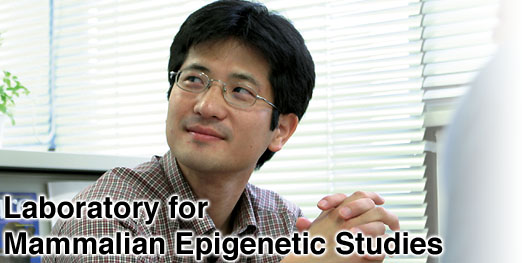




     |

The development and physiological function of multicellular organisms relies on the ability of their component individual cells, which as a rule contain identical genetic information, to express subsets of genes in a selective manner. In order to maintain lineages of cells of different types, the gene expression programs established in ancestral precursor cells must be transmitted stably to many generations of progeny. The fundamental mechanisms by which patterns of gene expression are preserved across cycles of cell division without a change to the underlying genome sequence are commonly referred to as “epigenetic” processes. These processes produce chemical modifications and structural remodeling of chromatin, nuclear structures that store the cell's DNA, allowing individual cells to regulate the switching on and shutting off of the expression of specific genes with great precision and flexibility.
Our team studies epigenetics by focusing on a particular set of molecules that act in the methylation of DNA, with the goal of identifying their roles in the regulation of chromatin function in embryonic development and the processes of fate determination and plasticity in cell differentiation. We conduct phenotype analyses of mice in which various genes involved in DNA methylation have been knocked out, as well as biochemical and cell biological studies of embryonic stem (ES) cells to explore how dynamic changes in DNA methylation function as regulatory factors in mammalian embryogenesis and cell differentiation, and the means by which DNA methylation works to maintain cell proliferation and chromosome function. We anticipate that a deeper understanding of these questions will lead to new insights in the context-specificity of the DNA methylation process as well as the roles of methylation in development, health and regeneration.